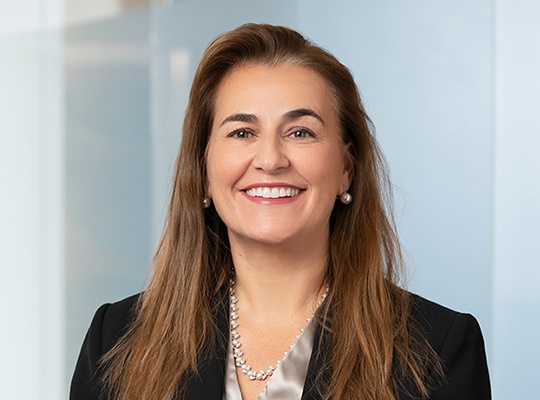Ninth Circuit: Class Action Settlement Not “All Right, All Right, All Right”
Key Takeaways
- The Ninth Circuit holds that, following changes to Rule 23(e), the Bluetooth factors for fairness of pre-certification class action settlements also apply to post-certification settlements.
- Defendants negotiating class certification settlements should be aware of the potentially objectionable terms the Ninth Circuit identified as red flags in settlement fairness review.
Last week, the Ninth Circuit became the first federal circuit court to directly address the December 2018 revision of Federal Rule of Civil Procedure 23(e) in Briseño v. Henderson, a consumer class action involving “100% Natural” labeling for Wesson cooking oil. In a colorful opinion loaded with pop culture allusions ranging from Hamilton to the Bachelor to Matthew McConaughey, the Ninth Circuit held that under Rule 23(e), federal courts were required to “scrutinize attorneys’ fees for potential collusion that shortchanges the class, even in post-class certification settlements.” Briseño v. Henderson, ___ F.3d ___, 2021 WL 2197968, at *13 (9th Cir. June 1, 2021). The Ninth Circuit reversed the district court’s approval of an almost US$8 million class action settlement that resulted in compensation of less than US$1 million to the class members and US$6.83 million in attorneys' fees and expenses. While district courts in the Ninth Circuit have been required to closely review pre-certification settlements for collusion under In re Bluetooth Headset Products Liability Litigation, 654 F.3d 935 (9th Cir. 2011), the Briseño opinion held that, in light of the fairness factors adopted in the revised Rule 23(e), the In re Bluetooth standard also applied to post-certification settlements. Defendants should prepare for the possibility of this more stringent review of Bluetooth and Briseño in negotiating and seeking approval of class action settlements, particularly within the Ninth Circuit.
The Ninth Circuit held that “[w]hile courts should not casually second-guess class settlements brokered by the parties, they should not greenlight them, either, just because the parties profess that their dubious deal is ‘all right, all right, all right.’” Briseño, 2021 WL 2197968, at *1. The appellate court applied to a post-certification settlement the standard of In re Bluetooth, which requires courts to scrutinize attorneys’ fee agreements in class action settlements for “subtle signs that class counsel have allowed pursuit of their own self-interests to infect the negotiations.” 654 F.3d at 947. Bluetooth identified three major signs of potential attorney collusion: (1) “when counsel receives a disproportionate distribution of the settlement”; (2) “when the parties negotiate a ‘clear sailing arrangement,’” under which the defendant agrees not to challenge a request for an agreed upon attorney’s fee; and (3) when the agreement contains a “kicker” or “reverter” clause that returns unawarded fees to the defendant, rather than the class.” Briseño, 2021 WL 2197968, at *6.
Applying Bluetooth, the Ninth Circuit described the settlement as containing “a bevy of questionable provisions that reeks of collusion at the expense of the class members.” Id. at *1. The terms the Ninth Circuit identified as questionable included the following:
- Disproportionate Distribution of “Claims Made” Settlement. The terms of the “claims made” Briseño settlement required the defendant to pay almost US$7 million in attorneys' fees and expenses, but the class received less than US$1 million dollars because the redemption rate for its 15 million members was only 0.5%. The Ninth Circuit remarked that the Briseño class amount was “no surprise, given how the parties knowingly structured the settlement.” Id. The Court acknowledged that class action redemption rates are low in claims-made settlements that involve small-ticket items and when the defendant, as in Briseño, was not required to provide direct notice to the class. The Ninth Circuit found that the disparity in distribution of funds between the class members and class counsel “raises an urgent red flag demanding more attention and scrutiny.” Id.
- Unreasonable Attorneys’ Fee Awards. While the district court found that the almost US$7 million attorneys’ fee award was reasonable compared to the lodestar amount of US$11.5 million, the Ninth Circuit held that comparison to the lodestar amount alone is not an accurate measure of whether a settlement agreement is reasonable, ruling that “even attorneys’ fees based on a reasonable percentage of an unreasonable number of hours [spent on pointless motions or unnecessary discovery] are still unreasonable.” Briseño, 2021 WL 2197968, at *8.
- The Sailing Arrangement. The Briseño settlement agreement had a “sailing arrangement” where the defendant agreed not to challenge the agreed-upon fees for class counsel. The Ninth Circuit advised that these types of sailing agreements “signal[] the potential that a defendant agreed to pay class counsel excessive fees in exchange for counsel accepting a lower amount for the class members.” Id. at *9. The Court further warned that the “very existence of a clear sailing provision increases the likelihood that class counsel will have bargained away something of value to the class.” Id.
- The “Kicker” Clause. The Briseño attorneys’ fee award contained a “kicker” clause in which the defendant, not the class, received the remaining funds if the district court rejected and reduced the parties’ agreed-upon amount of attorneys’ fees. The Ninth Circuit noted that the “kicker” clause may prevent any Rule 23(h) challenge of the attorney fee amount—since the class would not directly benefit from any redress, a class member may not have standing to raise an objection to the amount.
- Reliance on the Value of the Injunction. During settlement negotiations, and motivated by business reasons outside of the litigation, the defendant in Briseño removed the product labeling that class members alleged was misleading and sold the product brand to another company. Still, the terms of the Briseño settlement provided injunctive relief for class members in the event that the defendant reacquired the brand in the future. While the district court found the injunctive relief had “some value,” the Ninth Circuit held that approval of the injunction of an unspecified value constituted reversible error. The Ninth Circuit held the injunction was “virtually worthless,” explaining that the defendant’s “promise [was] about as meaningful and enduring as a proposal in the Final Rose ceremony on the Bachelor.” Id. at *10.
While the Ninth Circuit acknowledged that disproportionate fee awards, clear sailing agreements, and kicker clauses, may in some instances, "be elements of a good deal,” it reiterated its warnings from Bluetooth that those types of agreements “may also signal a collusive settlement, [so] district courts must scrutinize them when they appear.” Id. at *9. Briseño requires courts and practitioners to take just as close of a look at the terms of attorneys’ fees award agreements in post-class certification settlements as they do in pre-class certification. Briseño calls on federal courts, under the revised Rule 23(e), to “balance the ‘proposed award of attorney’s fees’ vis-à-vis the ‘relief provided for the class’ in determining whether the settlement is ‘adequate’ for class members.” Id. at *13. Although the likelihood of a finding of collusion diminishes after a class is certified, even in post-certification cases, defendants should structure settlement negotiations and approval papers with Briseño in mind.




